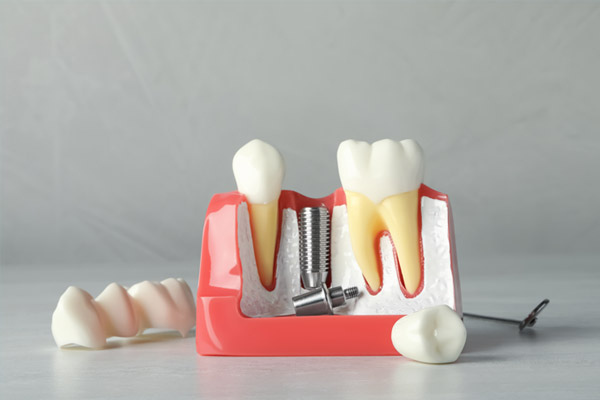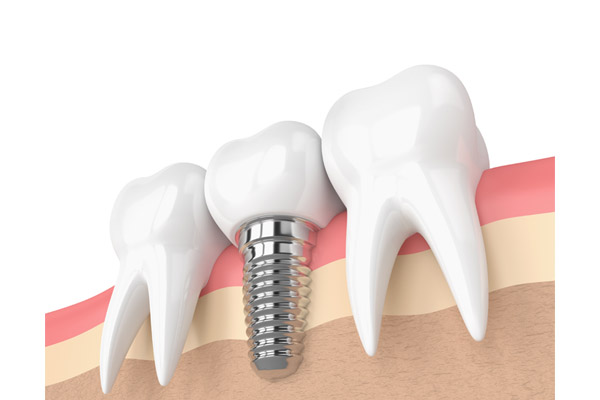Options for Managing your TMJ

Looking for ways to manage your TMJ? When you have been diagnosed with a temporomandibular joint disorder, it means the joints that connect your jaw to your skull are not working properly. This can be due to some type of injury that you experienced, a misalignment in your teeth or jaw area, grinding or clenching of the teeth, poor posture, immense amounts of stress and/or because of an arthritis diagnosis. As you can see, there are many reasons why a person may experience jaw problems. In order to best find the relief that you are looking for, understanding more about TMJ management is necessary. Keep reading to find out more.
Common TMJ symptoms
The symptoms that come along with a TMJ diagnosis will differ between every patient and can be mild or severe. Some of the more common symptoms of TMJ include tenderness, discomfort or pain in the jaw area, an achy feeling in one or both ears, an inability to fully open the mouth, a clicking or popping sound when opening or closing the mouth and even difficulty chewing food.
Options for managing TMJ
The following is a list of options that anyone who is suffering from TMJ can use to help manage their discomfort and/or pain.
Take anti-inflammatory medications
Taking over the counter pain medications will help to reduce any swelling in the jaw area. It will also provide those diagnosed with the discomfort and/or pain relief that they are looking for due to their TMJ disorder.
Apply moist heat or ice
Applying moist heat or ice to sore temporomandibular joints can help to reduce any discomfort or pain as well as relax the muscles. However, it is best to do both in moderation in order to avoid skin irritation.
Eat soft foods
Eating soft foods helps to reduce any pressure placed on the jaw. Cutting up food into small pieces for easier eating is also recommended.
Things to avoid
Those suffering from TMJ can choose to avoid doing certain things that can irritate the jaw area, which could lead to experiencing various levels of discomfort and/or pain. Things to avoid when living with TMJ include chewing gum, yawning, yelling, singing and clenching or grinding the teeth.
Are you currently suffering from TMJ?
Is TMJ getting in the way of your ability to enjoy everyday life? If you said yes, then learning your options for managing your TMJ symptoms is highly recommended. The above management options work better for those who experience mild to moderate TMJ symptoms. This makes it necessary for those who are experiencing severe TMJ symptoms to contact a dental professional for a complete evaluation as more intense treatment options may be necessary, i.e. orthodontics, surgery.
In order for you to better understand if your TMJ requires more intense treatment options, we invite you to contact us now to schedule an appointment with one of our experienced dentists. Give us a call or stop by today!
Are you considering TMJ treatment in the McLean area? Get more information at https://www.oaktreefamilydental.com.
Check out what others are saying about our services on Yelp: Read our Yelp reviews.
Recent Posts
One of the requirements for a patient to be able to get a dental implants procedure is that the patient must have sufficient jaw bone to anchor the implant. Some patients who do not have adequate bone mass may be able to get implants by first having a bone graft procedure.A dental bone graft procedure…
For many people, dental implants can be a permanent solution for dealing with lost or damaged teeth. This type of treatment is designed to last a lifetime. Once it is complete and healed, patients can enjoy a more beautiful smile without having to worry about any dietary changes, difficult home care, or unnatural-looking teeth.Dental implants…
An emergency dentist can provide tooth-saving care in emergency dental situations. However, it is common not to know what constitutes a dental emergency nor how to handle common situations while waiting for dental care. Understanding when to seek help from an emergency dentist and how to manage the situation before you get to their office…
Dental implants are an option for people who need to replace one or more missing teeth. The process involves several steps during which a metal post is surgically mounted into the jaw. The replacement tooth or crown is then secured to the implant, holding the new tooth firmly in place.Missing teeth can have an adverse…


